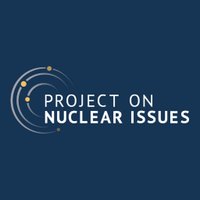
Lachlan MacKenzie
@lachlanmckn
Russia, intl security | @csisponi
ID: 1321412774
02-04-2013 00:14:07
97 Tweet
188 Followers
176 Following

🚨New in Thought Room: "The Credibility Challenge: US Extended Deterrence in the Indo-Pacific" by Joseph Rodgers Joseph Rodgers, Deputy Director of CSIS Project on Nuclear Issues. This piece examines key challenges & offers recommendations to the US leadership. Read here: platform.opennuclear.org/thoughtroom/ex…


Pleased to share my latest article on missile defense of the ICBM leg, just published on the CSIS Project on Nuclear Issues blog. I argue that deploying point defenses around US ICBM fields can enhance triad survivability and offset PRC/Rus advances in hard-target kill. nuclearnetwork.csis.org/missile-defens…



Why does America need a modernized and flexible nuclear force? And why does it cost so much? Lachlan MacKenzie and I had thoughts. CSIS Project on Nuclear Issues CSIS Defense and Security Department CSIS csis.org/analysis/why-d…

Read a #NEW analysis in The Diplomat from PONI staff Catherine Murphy and Lachlan MacKenzie on the potential impact of Russian technological assistance on North Korea’s nuclear program ⬇️

#NEW CQ out now from Diya Ashtakala "India and Pakistan’s recent crisis highlights how rapidly tensions can escalate to a dangerous level, marking a new era of conflict between the two nuclear-armed neighbors." Read more: csis.org/analysis/what-…

#NEW in Bulletin of the Atomic Scientists Joseph Rodgers and Diya Ashtakala write that the "dissonance between rhetoric and reality highlights the enduring tension between the aspiration for a world free of nuclear weapons and the persistent challenges that stand in its way." thebulletin.org/2025/06/only-i…

New from Lachlan MacKenzie and I on nuclear escalation and air defense after Operation Spiderweb. Guerrilla warfare by air is here to stay.


#NEW CQ from Lachlan MacKenzie and Masao Dahlgren: “Suppressing enemy air forces no longer assures that skies will be safe; there is now an “air littoral”—a domain of lower-altitude, lower-end drone threats—that must be secured.” Read their full analysis: csis.org/analysis/ukrai…

Our CSIS Project on Nuclear Issues colleagues on the long-term effects of Ukraine's drone attacks against strategic airbases across Russia: "The loss of even 11 aircraft would be a major blow to Russia’s strategic bomber fleet, which has played a central role in missile strikes against Ukraine. As


🚨 Our own CSIS Europe, Russia, and Eurasia Program report on Russia’s economic adaptation over the past three years is finally out! We trace Russia's economy energy-revenues driven sugarhigh in the early post-invasion period, as well as the current phase of post-sugar high hangover - and what it means for


"The future of Iran’s program and regional proliferation risks will depend on the success of Israel’s campaign, the international response, and Tehran’s perceived need for nuclear weapons." Read a #NEW CQ from Heather Williams, Doreen Horschig, and Bailey csis.org/analysis/what-…

In this CQ, my CSIS Project on Nuclear Issues colleagues and I try to shed some light on what we know so far and what the Israeli attacks might mean for Iran’s nuclear program and nuclear risks in the region.

I joined my terrific colleagues Mona Yacoubian, Daniel Byman, & Will Todman for a discussion on the Israel-Iran conflict: csis.org/events/israel-… CSIS Project on Nuclear Issues CSIS Middle East CSIS Defense and Security Department CSIS UCF School of Politics, Security, and Intl Affairs MIT SSP

There's a lot of noise about what are options for destroying Fordow. I tried to break it down here: CSIS Project on Nuclear Issues csis.org/analysis/optio…

"Rising tensions with Iran expose a volatile shift in the nonproliferation regime. As the regime’s normative power wanes, proliferation risks will rise, and military counterproliferation efforts will be more likely." Read a #NEW commentary from Joseph Rodgers csis.org/analysis/iran-…

